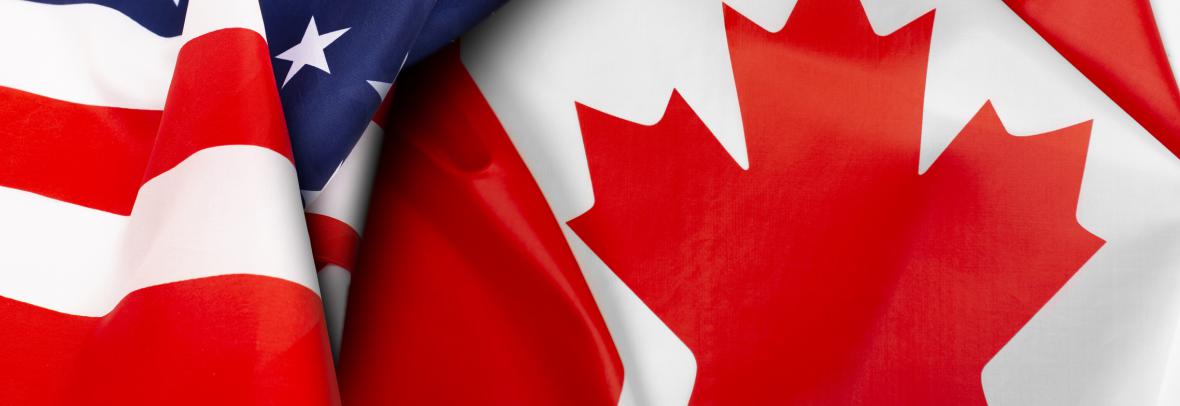
In a likely boost for Fla. tourism and real estate, the Canadian government will ease border rules in Aug. Fla. Policy and Budget official expects “a big jump in people.”
TALLAHASSEE, Fla. – State economists expressed optimism that already-rebounding tourism numbers will see a quicker-than-anticipated boost from international travelers as Canada eases COVID-19 border restrictions.
While the White House hasn’t announced decisions yet about Canadian travelers entering the United States, members of Florida’s Economic Estimating Conference said Tuesday they anticipate changes that will make it more convenient for people traveling south of the U.S.-Canada border.
“The borders closed. The border opens. You’re going to have a big jump in people,” Holger Ciupalo, policy coordinator for the governor’s Office of Policy and Budget, said as the economists looked at a long-range outlook for Florida’s economy.
On Monday, the Canadian government announced that, starting Aug. 9, fully vaccinated U.S. citizens will be able to visit Canada without having to quarantine for two weeks. Children under 12 who are not approved to receive vaccines will also be exempt from the quarantine rule, so long as they follow public-health measures such as avoiding certain group settings, including camps and day care.
Even with growing uncertainty about the spread of the COVID-19 Delta variant, which sent the stock market reeling on Monday, the panel of Florida economists forecast that Canadian travel would reach pre-pandemic figures earlier than the first quarter of 2022.
With less than 48% of eligible Florida residents fully vaccinated against COVID-19, Amy Baker, coordinator of the Legislature’s Office of Economic & Demographic Research, expressed hesitancy about being too optimistic in forecasting travel because of the Delta variant.
But Ciupalo said he expects the White House to match the Canadian border-policy changes within the next three weeks.
“Yes, you have the Delta variant coming out. However, Canada’s over 70% vaccinated. They’re still getting vaccinated,” Ciupalo says. “Yes, the U.S. is lacking on that. Be that as it may. So, I do not think that the forecast for Canadians should come down from wherever it is right now.”
The United States and Canada restricted non-essential travel across the border because of the pandemic. On Monday, White House spokeswoman Jen Psaki told reporters that international travel decisions await guidance from public-health and medical experts.
“We take this incredibly seriously, but we look and are guided by our own medical experts. I wouldn’t look at it through a reciprocal intention,” she said.
Canadian travel into Florida for the first quarter of 2021 was down 97.2% from the same period in 2020, with Florida attracting 34,000 Canadians during the period, according to Visit Florida numbers.
The state’s tourism-promotion agency also estimated that overall international tourism was down 74.4% during the first quarter of 2021, compared to the same period in 2020. The state drew an estimated 564,000 overseas visitors the first three months of the year, with many nations imposing border screening and other travel restrictions due to COVID-19.
Second-quarter numbers from Visit Florida aren’t expected to be released until next month. Those numbers are expected to easily top the second quarter of 2020, when the tourism industry bottomed out because of the pandemic.
Florida this year drew an overall 26.16 million visitors from Jan. 1 to March 31, down from 30.4 million tourists during the first quarter of 2020, according to Visit Florida.
Vesselka McAlarney, who conducts economic forecasts for the Office of Economic & Demographic Research, said this year’s first-quarter numbers might be in part “artificially boosted” by former part-time residents and online workers permanently relocating to Florida. But that shouldn’t impact the anticipated growth in international travel to Florida.
Florida attracted an estimated 79.75 million tourists in 2020, a 39.3% drop from 2019. The 2020 figures were the lowest in a decade for a state that relies heavily on tourism to fuel its economy.
Until the pandemic, Florida posted nine consecutive years of increased tourism numbers, topped by 131.4 million travelers in 2019.
The pandemic began hammering the state’s economy in March 2020, amid a period of the year that includes tourist draws such as spring break and baseball spring training. The number of tourists fell to 9.92 million in the second quarter of 2020, a 69.4% drop from the prior year, before increasing to 20.33 million in the third quarter and 19.096 million in the fourth quarter.
Source: News Service of Florida
Go to Source
Author: kerrys



